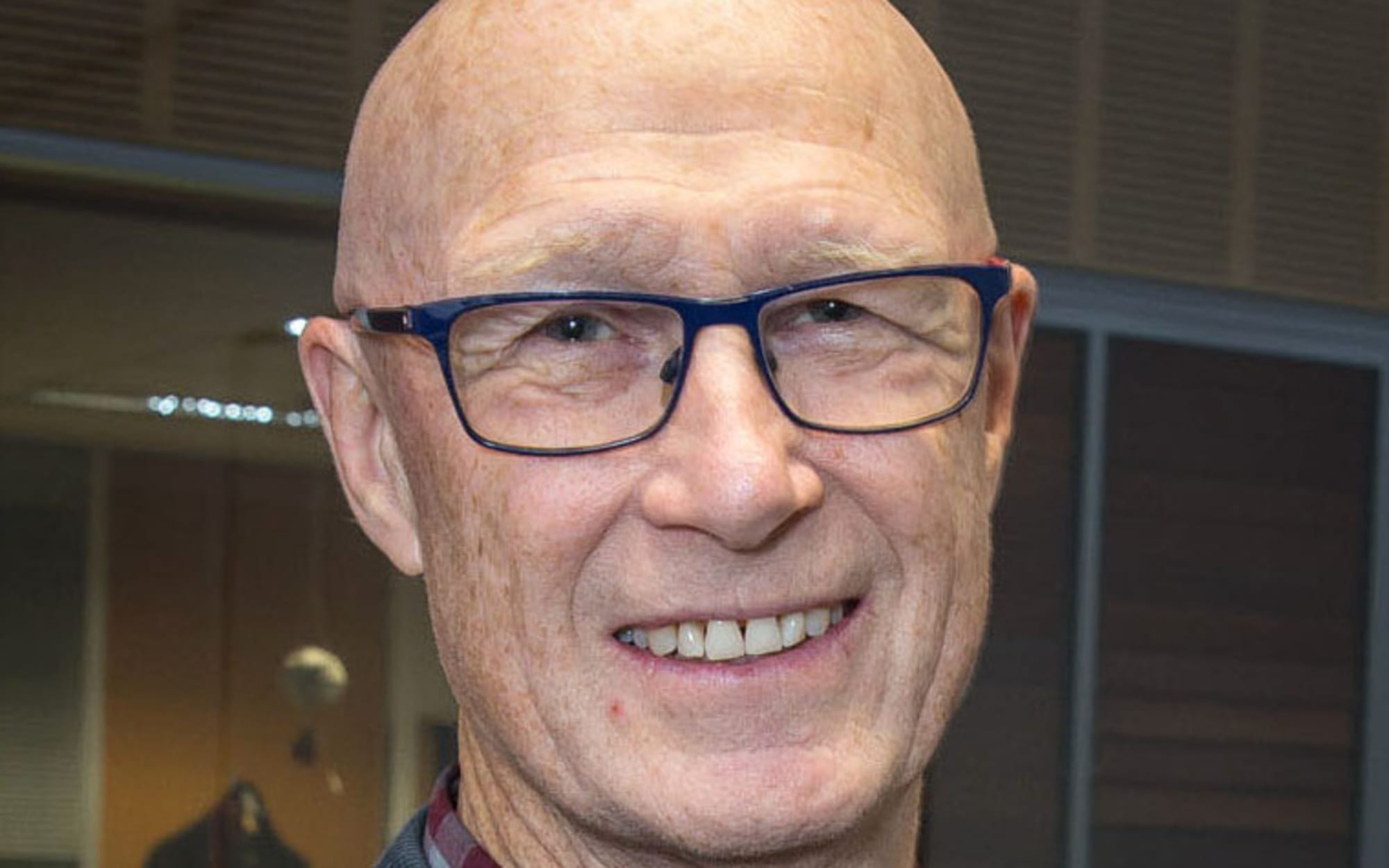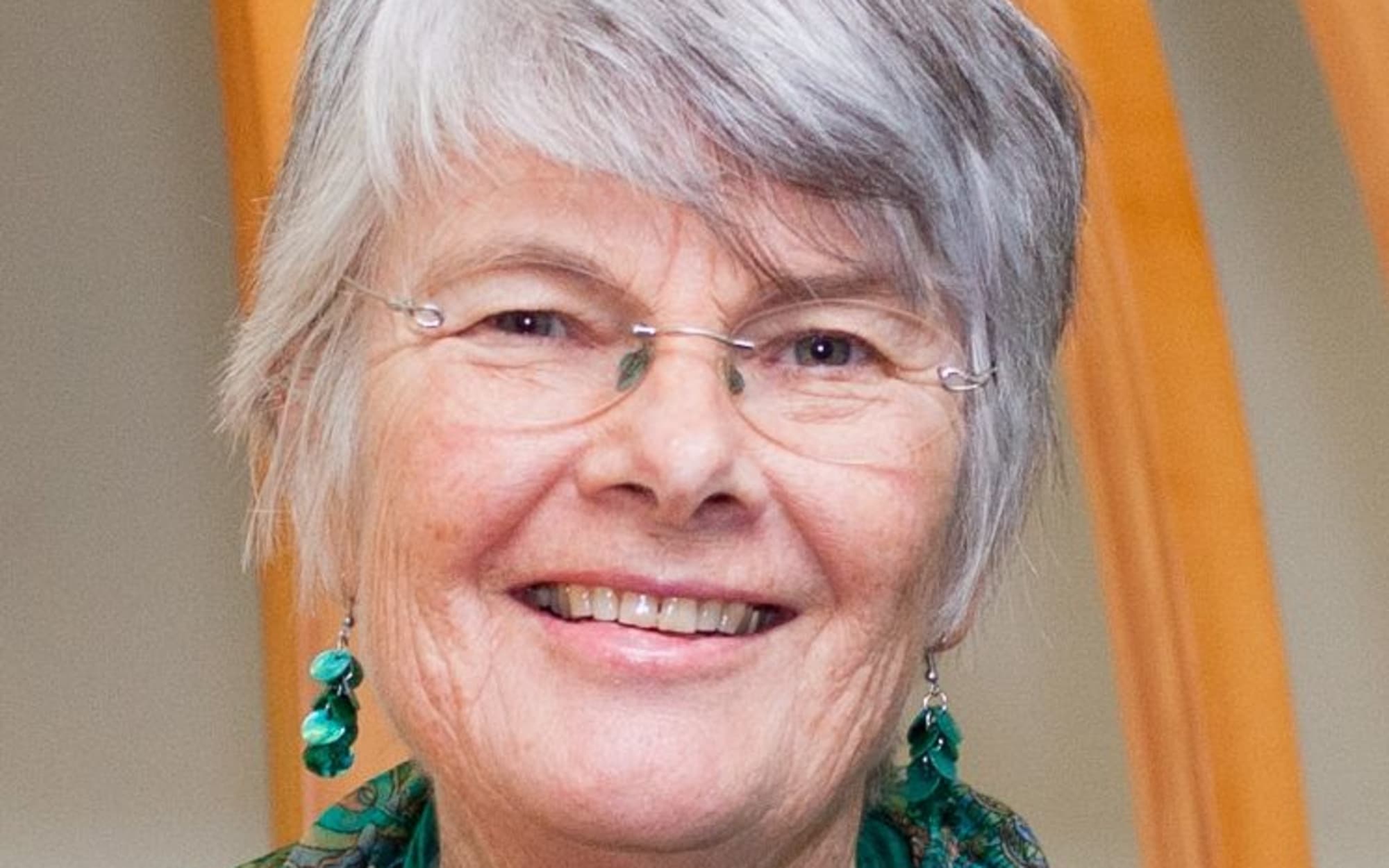As they put the finishing touches on the agenda for the Nutrition Societies Conference, organisers faced a familiar dilemma: take money from a big food company or assert their independence and risk the event falling over.
In an email exchange, leaked to RNZ, the organising committee chair for the 2020 conference, a Professor of Human Nutrition at Massey University, outlined the deal before them.
“The arrangement is that for $25,000 (AUD) Dairy Australia sponsors a plenary speaker. They can suggest a speaker, but the conference committee has the final say on approval.”
Dairy Australia wanted Professor Frank Mitloehner, an air quality specialist at the Department of Animal Science in the United States, to speak on “The 2050 challenge - Can We Eat Our Way Out Of Climate Change?”
Mitloehner is a strong defender of meat and agriculture in the media, writing about the “false assumptions about the linkage between meat and climate change” and saying that “foregoing meat and meat products is not the environmental panacea many would have us believe”.
According to a 2022 article in the New York Times his academic group, the Clear Center at University of California, “receives almost all its funding from industry donations and coordinates with a major livestock lobby group on messaging campaigns”.
The email chain leaked to RNZ shows a member of the conference organising committee, from the School of Population Health at Auckland University, opposed Mitloehner speaking at the Nutrition Societies Conference.
“I am against allowing industry to select a speaker on principle,” she wrote.
“If the committee wants to invite him I strongly support having a whole session on sustainability where we select the rest of the speakers and include a panel discussion where the experts can go back and forth, rather than one person just getting a platform to present a certain point of view and going unchallenged.”
Her concerns were shared by another committee member, an independent nutritionist.
She confided that she’d faced the same dilemma the previous year, when Jeremy Hill, Chief Science and Technology Officer at Fonterra and a 30-year veteran of the company, spoke at the 2019 Nutrition Societies Conference.
“I have concerns about allowing an industry personality to be the keynote speaker. As with Jeremy Hill's talk at this year's conference, I can't imagine that a dairy industry spokesperson will present the whole picture, particularly around the environmental, soil and water quality issues related to dairying, which are extremely relevant to sustainability.”
But then she cut to the chase: money talks. “We probably can't turn down $25,000 can we? It's going to be a huge conference and making up that kind of cash would be a stretch. We could use that money to bring speakers in that balance up the content as a whole.”
In the end, Covid-19 intervened and the conference was cancelled.
But multiple sources told RNZ this situation was common for organisers of such events. The food industry offered up the cash, and its chosen speakers loomed large in the discourse.
Read more from this series:
- Junk food advertising a 'major contributor' to obesity
- How ultra-processed food became a battleground
- A proposed legal cap on the amount of sugar or salt in food has a surprise supporter
- Ministers were advised taking GST off fruit and vege would not lower prices
‘As soon as there’s some policy … they will pounce’
Investigating the influence of the food lobby, RNZ followed a trail of sponsorships, payments, programmes and deals running across sport, politics, nutrition and education.
On their own, none of the arrangements would warrant screaming headlines but taken together they show the food industry has considerable influence on the debate about obesity, nutrition and sustainability.

Professor Boyd Swinburn Photo: Supplied
Professor Boyd Swinburn, co-chair of Health Coalition Aotearoa, says the food lobby is hugely powerful.
“They're fully embedded in the political and economic life in New Zealand,” he says. “As soon as there's some policy on the table - that they're thinking about sugary drinks tax or restrictions on junk food marketing or so on - they will pounce.”
Documents obtained by RNZ under the Official Information Act give glimpses of the relationship the food industry has with politicians.
When he worked for the New Zealand arm of trans-Tasman lobbying firm Anacta, Andrew Kirton lined up a series of dinners between politicians and executives of supermarket giant Countdown.
“Countdown NZ’s managing director Spencer Sonn would like to invite the Minister to dinner with the Countdown executive in Auckland,” Kirton wrote in an email to Finance Minister Grant Robertson in January 2022.
The dinners were billed as a chance for “VIP guests to discuss portfolio issues” and hear about Countdown plans.
“They are designed to be very informal affairs and an opportunity for the Minister and executive to get to know each other in a relaxed environment.”
Robertson accepted the opportunity and dined with Countdown between 5.30 and 8pm in March 2022.
Unlike most developed countries New Zealand has no ‘cool off’ periods or other rules stopping the ‘revolving door’ between lobbying and politics - so people are free to move between the two as quickly as they like.
Kirton resigned from the lobbying firm just one day before he was announced as chief of staff for Prime Minister Chris Hipkins on 1 February 2023.
Ellen Read, who was deputy chief press secretary for former Prime Minister Jacinda Ardern, is now Head of Public Relations and Community for the Woolworths Group, which owns Countdown.
RNZ also obtained documents showing that Barbara Edmonds, who was associate health minister with responsibility for obesity between February and July this year, accepted a business attachment programme with supermarket giant Foodstuffs.

Barbara Edmonds was briefly the Associate Health Minister with responsibility for obesity Photo: RNZ / Angus Dreaver
She was set to do the business attachment, facilitated by the New Zealand Business and Parliament Trust, in April but cancelled after she was given the cyclone recovery portfolio which required extensive travel.
The minister’s office did not address RNZ’s questions, including if she sought advice from the Cabinet Office about whether the business attachment with Foodstuffs would have been a conflict of interest.
A spokesperson for Edmonds simply said: “Ministers receive a range of invitations to meet. In this instance, the minister declined the invitation.”
Education programmes funded by industry
RNZ also found the food industry has an influential role providing nutrition programmes and resources to teachers and children in the education system.
Foodstuffs sponsors the Food for Thought programme which it says has reached more than 200,000 New Zealand children in 7300 classes.
“The programme involves nutrition education and an educational visit to PAK’nSave, New World or Four Square and preparation of lunch using ingredients from the supermarket,” according to the Food Industry Taskforce’s 2018 report.
The food industry report says the programme was “developed by Foodstuffs alongside medical professionals, teachers and nutritionists” and “aims to reduce rising rates of obesity in New Zealand”.
Nestlé, one of the world’s largest manufacturers of ultra-processed food, runs the Nestlé Healthy Active Kids Programme.
“The program supports the development of free teachers resources, designed for teachers,” according to the food industry taskforce, aiming to “inspire healthy and active kids”.
The programme is a collaboration with the Nutrition Foundation, a charity that promotes healthy eating but gets much of its money from big food companies.
Corporate members include Nestlé, Fonterra, Countdown, Coca-Cola, McDonald’s and the Antares Restaurant Group, which is the master franchisee of Burger King in New Zealand.
Charities documents show that in 2021, corporate subscriptions accounted for $112,000 of the Nutrition Foundation’s $195,000 revenue. Corporates provided $94,000 in 2022 and $90,000 in 2023.
Professor of Nutrition Elaine Rush, until recently the scientific director at the Nutrition Foundation, said the foundation was not compromised by the money from the big food companies.
“I certainly speak out very strongly if I think there might be any influence,” she said. When asked why big players in the food industry fund the foundation, she said “they want to be seen as having social responsibility”.

Professor Elaine Rush Photo: Supplied
Rush acknowledges the tension between the goals of the food industry and the aims of the Nutrition Foundation. “They want to make a profit so they will sell what people will buy,” she says. “That's where we need stronger regulation, like for instance, a sugary drinks tax or incentives so that healthier food is more easily available and becomes a realistic choice for people.”
But ultimately Rush says obesity is “everyone's problem” and the solutions need to come from the government, NGOs and from the food industry.
“We need to work together to make things better. So if we exclude them completely we can't do that work together.”
But Fiona Sing, a research fellow at Auckland University and an international food and nutrition policy specialist, doesn’t see it that way.
She says big food companies are using corporate social responsibility programmes to burnish their reputations and head off regulation that could hurt their profits.
“Anything that is designed to try and regulate the food industry and the way it works, they will have an interest in it and, not just be consulted, but be part of the process.”
Sing says the food industry has achieved that in New Zealand.
“We haven't seen any meaningful food law put in place that would regulate anything in the unhealthy food space.”
Sing said the food industry should not be involved in education programmes provided to children about nutrition and obesity.
“The resources and the expertise exist. This doesn't need to be provided by any company that has a commercial vested interest.”
Food and Grocery Council’s role
The Food and Grocery Council (FGC) has been one of the most influential and controversial lobby groups for the food industry.
The FGC says its members, food manufacturers and suppliers including the large multinationals, directly or indirectly employ nearly 500,000 people - one in five of the New Zealand workforce.
The FGC was led for more than 13 years by former National MP Katherine Rich and became associated with aggressive lobbying tactics.
The FGC and Rich were both named as defendants in defamation action stemming from Nicky Hager's 2014 book Dirty Politics, which outlined a campaign to place damaging stories attacking public health messaging about the dangers of sugary food, alcohol and tobacco.
The defamatory blogs were posted on the website Whale Oil between 2009 and 2016.
Those targeted were Doug Sellman of Alcohol Action, population nutrition and global health Professor Boyd Swinburn, and former director of Te Reo Mārama, the Māori Smokefree Coalition, Shane Bradbrook.
Rich and the FGC settled before the case reached court, leaving public relations consultant Carrick Graham to apologise to the three public health advocates and make a confidential payment.
In March 2021, at the High Court in Auckland, Graham admitted the statements made against the men were "untrue, unfair, offensive, insulting and defamatory" and were done to "advance the interests of industry".
The FGC released a statement following the case saying that “it did not pay anyone to write any stories on its behalf on Whale Oil or any other publication” and was not “involved in any such stories” in any other way.
Raewyn Bleakley, who took over from Rich a year ago, distanced the FGC from the saga.
“I wasn't there. What I can say is it didn't go to court because the case was settled for the Food and Grocery Council before it went to court. There was never any fault admitted.”
Bleakley said she would forge a new path for the FGC. “I am in the role as a new person and we have a new board and it is not my intention to shoot down evidence-based academic studies.”
She pledged not to use aggressive tactics lobbying for the food industry.
“You absolutely will not see them from the Food and Grocery Council or from me and I'm not saying that they did happen, but you will absolutely not see them. I have a very strong set of values.”



